75,000 – Government’s Official Projection of Lockdown Deaths
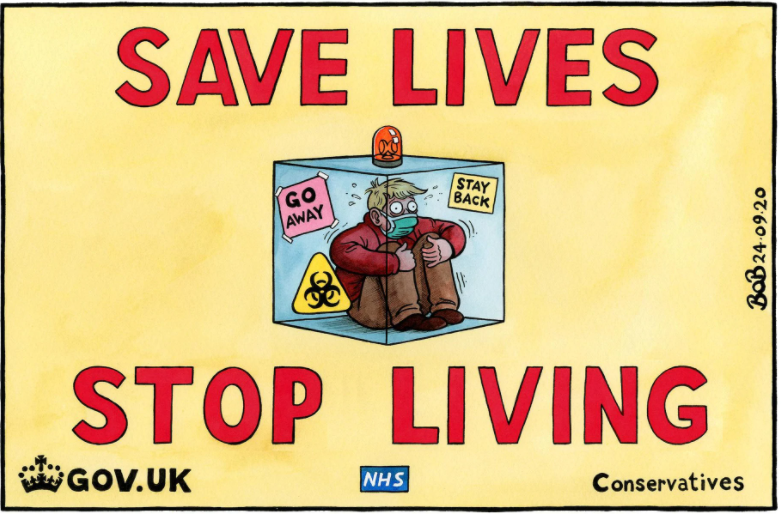
The Mail has discovered the figure the Government has put on the number of collateral deaths caused by the lockdown buried in a SAGE report.
Nearly 75,000 people could die from non-Covid causes as a result of lockdown, according to a devastating official figures buried in a 188-page document.
The startling research, presented to the Government’s Scientific Advisory Group for Emergencies (Sage), will further increase pressure on Boris Johnson to hold back on introducing further coronavirus restrictions.
The document reveals 16,000 people died as a result of the chaos in hospitals and care homes in March and April alone.
It estimates a further 26,000 will lose their lives within a year if people continue to stay away from A&E and the problems in social care persist.
And an additional 31,900 could die over the next five years as a result of missed cancer diagnoses, cancelled operations and the health impacts of a recession.
The toll of deaths directly linked to the virus last night stood at 41,936.
The estimates, drawn up by civil servants at the Department of Health, the Office for National Statistics and the Home Office, were presented to Sage at a meeting on July 15th. The documents stressed that had nothing been done to stop the spread of the virus in March, 400,000 people could have died of Covid.
And if the NHS had been overrun, this figure might have even soared to 1.4 million. But they acknowledged the restrictions had significant unintended consequences.
How can the Government still believe these catastrophic predictions from discredited models when the experience of countries like Sweden, Tanzania and Belarus show the truth about what happens under minimal restrictions? Is it a case of refusing to believe the evidence of one’s own eyes because it is too painful? Certainly, there is some serious corporate groupthink going on.
Incidentally, we can expect the press to periodically discover these reports to Sage. They’re part of a series being done by the Department of Health and Social Care, the Office for National Statistics, the Government Actuary’s Department and the Home Office. The first of these was published in April.
Stop Press: A famous financial journalist who has long been an anonymous contributor to Lockdown Sceptics thinks he knows what the problem is:
Ex Governor of Bank of England Mervyn King has written a book with John Kay recently called Radical Uncertainty. Lots of stuff about the unreliability of models (all models are wrong some are useful). Their simple advice is for people to lay down the model and ask, “What’s going on here?” Boris and his crew in Downing Street don’t have the good sense to do just that. And the cost of their failure in unfathomable.
Economics Prof Replies to More or Less

More or Less, the Radio 4 stats programme, wheeled out Sir David Spiegelhalter to ridicule those of us who’ve been highlighting the false positive rate this week, claiming it was all a storm in a teacup. The Huffington Post had a go, too, naming Julia Hartley-Brewer and Toby, among the rank amateurs who’ve apparently misunderstood just how insignificant false positives really are.
We couldn’t let that slide, obviously, and today we’re publishing an original piece by Gordon Hughes, a former Professor of Economics at Edinburgh University, rebutting these criticisms. Here’s an extract:
The core problem is that the UK is relying upon a set of policymakers who appear to be neither competent nor willing to be honest about the choices that are being made. Selling policies to credulous journalists is simple. Convincing a wider public that contains a significant number of people who have the expertise and willingness to challenge what appears to be irrational policy is a different matter. The UK Government appears to believe that honesty will further reduce already low levels of willingness to comply with current policies. What they – and their public supporters – should recognize is that the unwillingness to admit and discuss the complexity of the cost-benefit calculations that surround testing merely fuels the lack of trust in current policies. Many of the public statements are so obviously wrong that it is hard to give credit to the more generous view that the policymakers are not really incompetent but merely dealing with a very difficult situation.
That, it seems to me, is the real lesson from Sweden. There were many people in the Swedish medical establishment who profoundly disagreed – and still disagree – with the policies recommended by the State Epidemiologist. There was an open debate and individuals were allowed to make their own choices. The outcome was mixed and the sources of failure have been identified and followed up. In the UK – across all of the nations – the attitude is that we (the “experts”) know better than everyone else and you must just do what we say. That is never a good story in an educated democracy. It is especially weak when the self-declared experts are easily challenged on a string of assumptions and issues so that their credibility cannot be sustained. All that is being achieved is a polarization of trust and belief in the competence of both politicians and those who advise them.
Worth reading in full.
Does Sweden Have Herd Immunity?

As Sweden comes in from the cold, with its scientific advisers being granted audiences with governments around the world and Dorit Nitzan, the WHO’s Regional Emergency Director for Europe, saying the country can “provide lessons for the global community”, attention has turned to the secret of their success.
Kim Sneppen, professor of biocomplexity at the Niels Bohr Institute in Copenhagen and a leading virologist, said this week: “There is some evidence that the Swedes have built up a degree of immunity to the virus which, along with what else they are doing to stop the spread, is enough to control the disease… They may now be finished with the epidemic.”
However, the role of immunity in Sweden remains contested. State epidemiologist Dr Anders Tegnell himself has downplayed it, answering a question this week comparing Sweden and Spain by stressing that achieving “herd immunity” had never been a goal of Sweden’s strategy (despite emails surfacing which suggest otherwise). He said:
I’m not sure that the level of immunity in Sweden and in Spain differs very much. I think the main difference between Sweden and many other countries is that we have had the same kind of restrictions and recommendations in place the whole time. And we have a really big adherence from the population to those recommendations. And that makes a difference, that makes us hopefully less susceptible to a second wave.
Maybe we’ll have the same experience in a few weeks’ time, we’ll see, but as I said, I think the big difference is that Spain had a strict lockdown and then opened up again, and then you do get back to quite a lot spread of disease.
Italy currently has even lower “cases” per 100,000 than Sweden (35 vs 37) but it would be hard to argue Italians are a peculiarly compliant people in the way Dorit Nitzan does of Swedes. From the Guardian:
Nitzan stressed that Sweden’s approach may not be applicable everywhere. Other countries should take into account that “in Sweden, the social contract between the government and its population is historically based on a very high level of trust”, she said. “That is the way the Swedish people and the government interact.”
Following the Swedish example, therefore, should not mean “adopting the exact same measures”, she said. “There are lessons to learn from every country. None has done it perfectly; all have made mistakes.
“Each country’s strategy to curb COVID-19 should be based on its specific situation and context, and be both scientifically sound and culturally acceptable. This is Sweden’s approach.”
When Boris Johnson claimed in the Commons that Brits are more freedom-loving than Italians as an explanation for why the UK is now faring worse than Italy he was rebuked by the Italian president, while Corriere della Sera, an Italian national newspaper, wrote on its front page:
Let me get this right – the country that invented queuing and immaculate lawns is not able to obey rules? Instead, group discipline is a trait of the Italians, a people who have a well-deserved reputation for disdain for regulations and individualism verging on anarchy?
There is a danger that the important lessons of the epidemic will be lost in sub-scientific generalisations about supposed national character traits that wrongly imply lockdowns are right for some places but not for others – ironically, it appears, the more “freedom-loving” a country is, the greater the need for a firm hand. When Nitzan and Tegnell claim that Swedes have been more compliant than Spaniards, what hard evidence is that based on? The Italians complain about the false stereotypes sent in their direction. We Brits should protest no less loudly about being so supposedly freedom-loving that only a good firm lockdown will break our spirits and keep us in line.
It also needs to be remembered that Spain had one of the longest and strictest lockdowns in Europe whereas Sweden never limited the size of gatherings to less than 50, never closed shops, restaurants, night clubs, schools under 16, or anything else, and never imposed or even encouraged face masks. Are we supposed to believe young people in Sweden stopped socialising and stopped going to parties? What basis is there for thinking that? The pictures that went round in April of young people in Stockholm crowding into nightclubs and cafes shows this up for the nonsense it is, while a recent BMJ article quoted Karolinska Institute immunologist Marcus Buggert in August saying that social distancing in Sweden was “always poorly followed, and it’s only become worse”.
Furthermore, even if Swedes were more compliant with their Government’s guidelines, the guidelines were so loose compared with what was imposed elsewhere that it’s hard to see how the mere fact of compliance makes all the difference.
The antibody rates in Sweden are, as Dr Tegnell notes, similar to those found in Spain and Italy. But then maybe that is why Italy also has no second wave, and Spain’s second ripple appears to be peaking, with the Carlos III Health Institute pointing out that the data on PCR tests by date of symptom onset shows the epidemic topping out weeks ago, even before the end of August.
The evidence for the early emergence of collective immunity rooted in T-cell cross-immunity from previous cold viruses continues to mount. Which is why one of the world’s leading epidemiologists, Oxford’s Professor Sunetra Gupta, is convinced it is playing a major role. It may suit the governments of the world to pretend that it’s all about a myth of Swedish stoicism and not about immunity so that they can exculpate themselves for not taking the same path in March.
But the danger is that the reality of immunity, which would allow countries to go back to normal (actual normal, not New Normal) becomes officially denied and buried. Even in Sweden the Government has called a halt to the lifting of restrictions, with a cap of 50 people in a group now set to remain and local lockdowns being threatened should local outbreaks occur. If Sweden can’t learn the lesson of Sweden, what hope is there for the rest of us?
As the autumn ripples in Spain, France and Britain fade, we need to make sure our leaders learn the right lessons, and can’t get away with crediting the new restrictions, the national temperament, the stars, or anything else except the only thing with hard scientific evidence behind it: immunity.
Stop Press: Fraser Nelson in the Telegraph points out that Chris Whitty rejects the immunity idea because, he says, people aren’t immune to colds and so it is probably short-lived. I suggest Professor Whitty urgently needs to widen his pool of advisers, starting with the immunologists and virologists who wrote this STAT article in August.
The experts who spoke with STAT all felt that the immune responses to this virus are exactly what you would expect to see. And the case of the Hong Kong man who appears to have been reinfected underscore that, several said.
“The fact that somebody may get reinfected is not surprising. But the reinfection didn’t cause disease,” said Peiris, who knows about the case but was not one of the authors reporting it.
Angela Rasmussen, a virologist at Columbia University in New York who studies human responses to viral infections, said it is hard to be definitive, given the limited human experience with this new coronavirus, but she said she could see no reason to believe the immune system would behave differently to this respiratory virus than to others.
“So far, anyway, the evidence supports functional immunity, but the only way to see how long that will last is to follow people over time and see if those responses diminish,” she said.
“The idea there is that, yes, your antibodies might wane, but your memory responses aren’t absent,” said Menachery, noting that when a primed immune system re-encounters the virus, production of antibodies would kick into gear.
A Picture Is Worth a Thousand Words
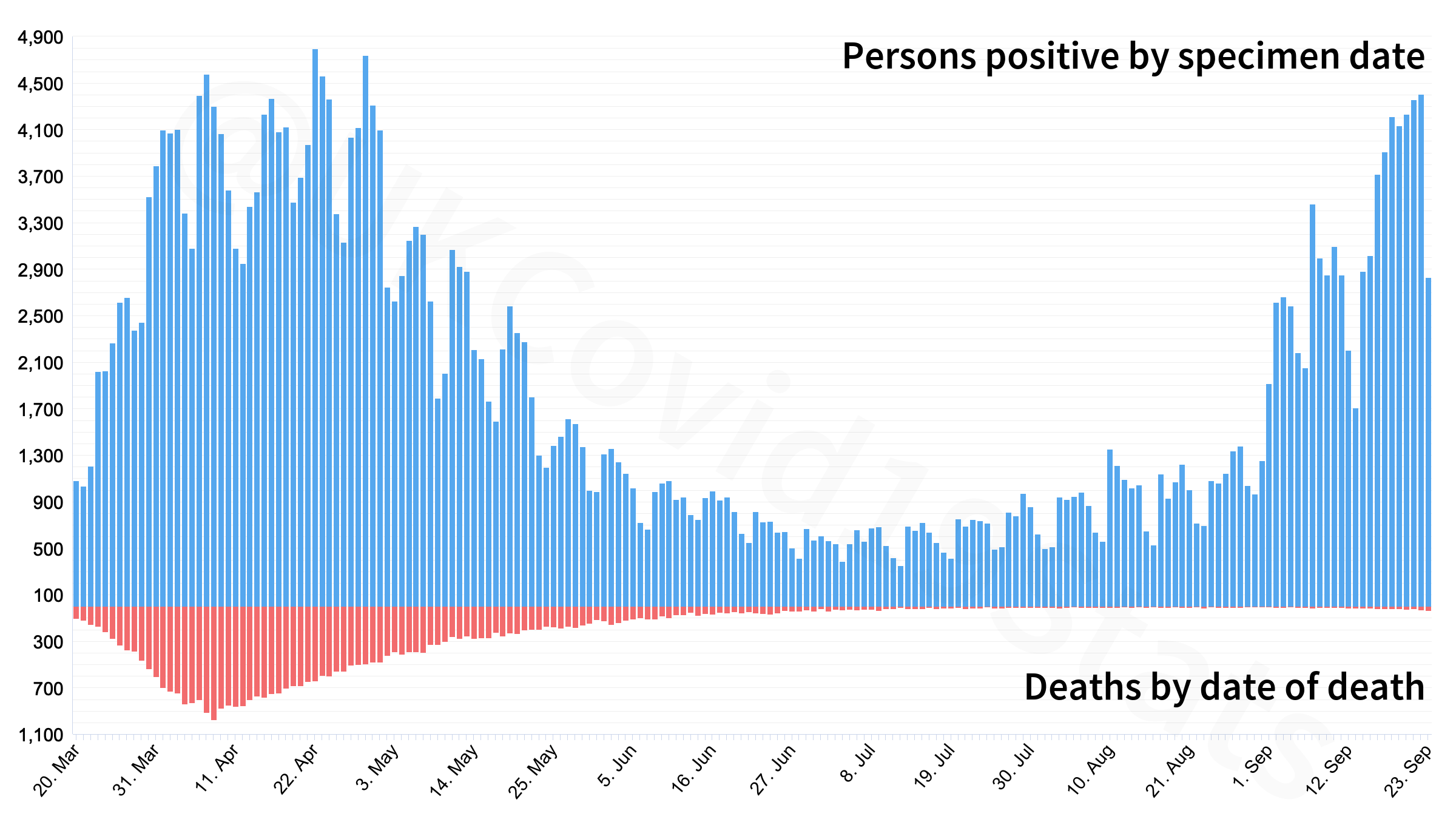
Is ‘Zero-Covid’ Now a UK-Wide policy?
Readers will recall that we were critical of Prof Devi Sridhar’s ‘zero-Covid’ strategy because: (a) the false positive rate means you can never reduce the number of ‘cases’ to zero, so restrictions will never be lifted (see Clare Craig on this); (b) it means quarantining people entering the country in perpetuity; (c) it assumes a vaccine will be be both 100% effective and available soon, neither of which is likely.
However, it looks as though this is now the official policy of the United Kingdom. Yesterday, a joint statement on coronavirus was issued by the UK Government, the Northern Ireland Executive, the Scottish Government, and the Welsh Government that said:
Following our meeting at COBR this week, we therefore reaffirm our shared commitment to suppressing the virus to the lowest possible level and keeping it there, while we strive to return life to as normal as possible for as many people as possible. We agree that our policy decisions should be consistent with this objective.
The lowest possible level and keeping it there.
Sounds like a ‘zero-Covid’ strategy to me.
God help us. (H/t Alistair Haimes.)
UsForThem: The Birth of a Movement

We’re publishing an original piece by Molly Kingsley today. Molly is one of the three founders of UsForThem, a grass roots, parent-run organisation that campaigns for schools to re-open in full and without any intrusive social distancing arrangements, and we asked her to write something for us about why she decided to start a campaigning organisation. Turns out, Molly was red-pilled when she saw the above picture. It horrified her at a deep, visceral level and she felt she had to do something – anything – to prevent this becoming the “new normal” for our children.
One Tuesday morning while nonchalantly slurping my coffee and scrolling through social media, that photo popped into my feed and with it an instinctively visceral reaction that propelled me to action. I looked at it. Then stared a while. Then thought – you’ll have to excuse the profanity but there really is no other way to put it:
“WHAT THE F*CK?!”
Because anyone with an ounce of humanity will know that this is no way to treat a child.
The harms of lockdown and social isolation on children are now, sadly, much better understood, having been written about by a growing number of increasingly alarmed child welfare experts. But you don’t need a psychology doctorate to understand that something that restricts young children’s play in such an abrupt and blunt manner is not likely to be positive for educational and social development – you just need to be a parent. And as parent, once you get an idea in your head that something is harming your child, it becomes hard to let it go. I realised it was not only my right, but my duty, to say, “No.”
UsForThem has probably been the most effective of the anti-lockdown campaigning organisations – an inspiration to us all. This piece is well worth reading in full.
Nic Sturge-on’s Student Hostages
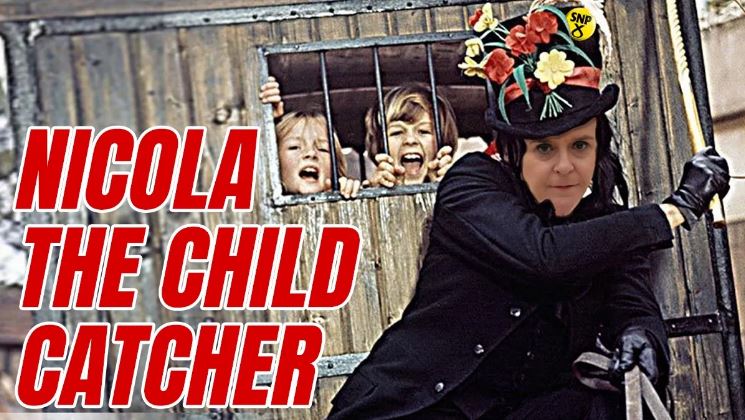
Alan Cochrane in the Telegraph delivers a blistering attack on the First Minister’s callous sacrifice of Scotland’s students in apparent pursuit of one-upmanship and poll ratings.
This is an absolute disgrace: a thousand new students have been imprisoned across Scotland – victims of Nicola Sturgeon’s preoccupation with looking good and fighting propaganda battles with London rather than taking the measures that would really beat Covid.
And now, incredibly, all of Scotland’s students have been hit with a brutal list of restrictions including a ‘stay away from pubs’ order.
The locked-down teenagers, just starting their varsity careers, are not so much prisoners as hostages – held captive until there’s an improvement in the official statistics about which Ms Sturgeon has thus far been only too pleased to boast.
No longer; Scotland’s figures are at least as bad as England’s means she has had to come up with ever-more draconian restrictions.
But the punitive rules being inflicted on all these kids puts everything else in the shade. Students have been told that they can’t do much more than stare at the four blank walls of their tiny flats, with security guards patrolling their halls of residence, they can’t mix with their fellow freshers, and can’t go home or even meet Mum and Dad.
Worse, any infraction of the draconian rules will be breaking the law. Guido summarises the restrictions.
– No parties and no socialising outside households and their accommodation.
– Increased staff presence in student accommodation
– Further engagement with private providers of student accommodation, especially those with significant numbers
– Intensified liaising with Police Scotland to ensure vigilance
– A strict ‘Yellow Card/Red Card’ approach to breaches of student disciplineThe raw deal students are getting is unbelievable, told to go to campus they are mostly doing lectures via video conference, not allowed to socialise and being told they can’t go home at Christmas (there will be tears) and paying full fees. Guido for once thinks complaining students may have a point. It’s been pointed out that university staff are still allowed to move freely in and between halls to check compliance, then go to the pub, then go home to their family.
Stop Press: A student at Glasgow University, Harry Butcher, has written in spiked about how his university feels like a prison, while a fresher at Dundee University, Euan Lee, tells his story, “I got Covid and now 500 people in my university accommodation have to self-isolate“, in the Telegraph.
Covid Avoids Swimming Pools
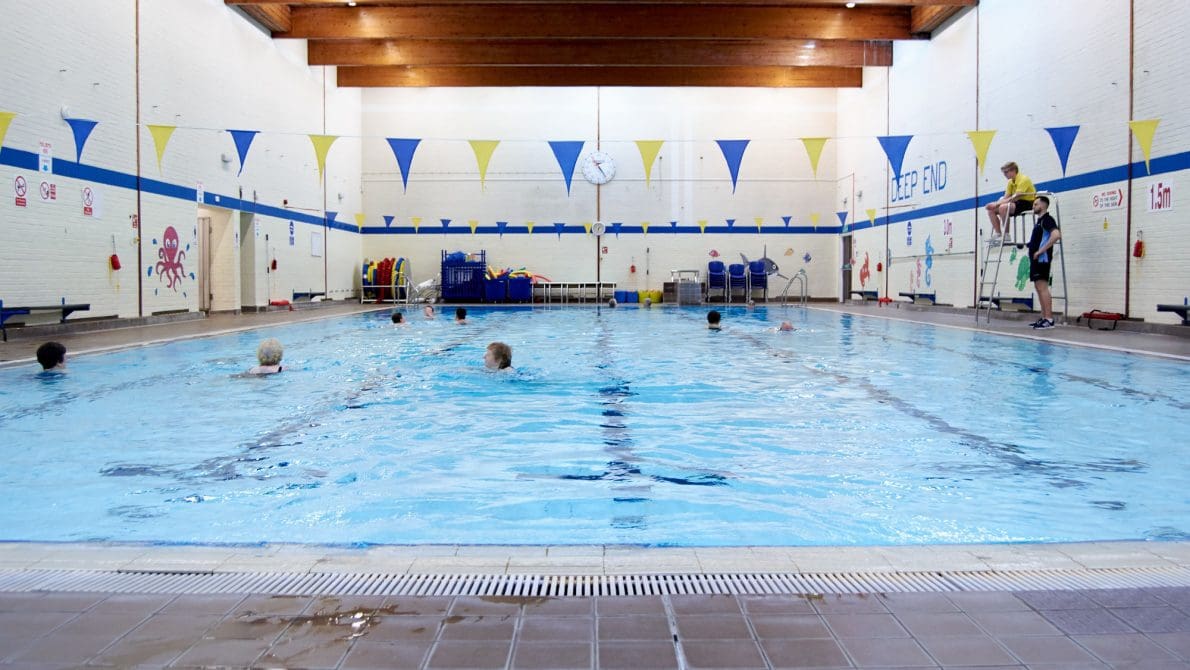
A reader has got in touch to tell us about the ridiculous rules she now faces when taking her toddler swimming.
What has really sent me over the edge was receiving a text message this morning saying: “Hi, it’s Water Babies. Following the recent tightening of COVID-19 rules, Wyvern are now asking that all adults wear a face covering when coming to the pool, unless you have an exemption. Please remove it just before you get in the pool and replace it when you get out again. Thank you for your help in keeping us all safe.”
What a clever virus this is – it can tell the time, it can tell if you are in a party of more than five other people, it can tell whether you are eating or drinking and now, I am told, it can tell whether you are just in or just out of a swimming pool. I am now considering cancelling my son’s swimming lessons.
Later came an update.
I received a reply from Water Babies Dorset and Salisbury:
“Hi, it is each venue’s own decision but due to latest government restrictions it just so happens that is a requirement at all our venues. Some decided before now, and some more recently like Wyvern. Water Babies x”
I have had a very quick scan on Google and can’t find the “requirement” stating that face masks have to be worn immediately before and after swimming! So I replied – “Many thanks for your reply, could I trouble you to send me the link which references this requirement?”
I am waiting for a response.
Winter is Coming

Jemima Lewis in the Telegraph , in a piece entitled “Far too many of us have no idea just how bad this is going to get“, delivers some brutal home truths to anyone still in denial about what is about to happen as the long winter of ongoing Covid restrictions starts to bite.
Even now, as Britain stares into the economic abyss, a stubborn myopia persists. When I tell friends what is happening in the hospitality industry right now – the high street names that are preparing to go into administration; the hundreds of thousands of jobs that are about to be lost – they go pale and back away nervously, as if from a madwoman. “The most important thing is to save lives,” they insist. The lives that will be lost, or ruined, through unemployment, poverty, depression, empty public coffers, crime – perhaps even civil unrest – seem to rest bizarrely weightless on the scale.
It is, in any case, a fait accompli. Nothing in Rishi Sunak’s emergency budget can save the day for those businesses that depend on high footfall. City centres are (or were) the coral reefs of the British economy: small but vibrant landscapes supporting a huge array of different businesses, from locksmiths to restaurants. Lockdown was devastating enough; six months of working from home will kill off the reef for good.
The hospitality industry is right at the front of the unemployment tidal wave. From this unhappy vantage point it is easy to see the boarded-up future from which so many – including some in Government – are still averting their eyes. Perhaps the economy can only be properly understood through experience. If so, this is going to be an agonising lesson.
Worth reading in full.
COVID-19 Assembly Update – Get Involved

The good people running the excellent COVID-19 Assembly initiative have been in touch about their new survey that they want readers of Lockdown Sceptics to help with.
The aim of the COVID-19 Assembly is to allow people to discuss and share the information around COVID-19 and the measures in place to “control” it. We want to create content and tools for volunteers to take to non-sceptics and show them why they shouldn’t worry. The SAGE minutes showed just how deliberate the mainstream media fear-mongering was.
Unfortunately, it worked really well. If polls are to be believed about 85% of people are genuinely scared. To unpick this programming, we are using the same weapons. We have a survey designed by the former lead psychologist of Cambridge Analytica. The results of this survey will inform the production of our content. It will help us understand exactly which points to focus on in order to change opinions.
This is a very complex problem and we need to work together to solve it. We can’t expect non-sceptics to complete the survey without some sort of incentive. We need you, readers of Lockdown Sceptics, to talk to non-sceptics you know (family, friends, colleagues, neighbours, etc) and ask them to complete the survey as a favour to you or buy them a drink or a coffee!
If you think they’ll do it by themselves then sending a link may do. But if necessary, you could meet them and open the survey on your own phone and ask them the questions. Ask them in the pub, over the phone, at work, over the garden wall, on the street, wherever.
This is extremely important! We need at least 400 non-sceptical people to complete the survey to have a representative sample. Please do your best to target five people each and try to get everyone to share it on social media. The more we get the more we will learn about how to end this nonsense.
Thanks and good luck!
This is an important and high quality initiative so let’s all get involved and help them reach their 400 target and much more. Find the survey here.
SNP Climbdown On Hate Crime Bill – But Is It Enough?

The Times on Thursday devoted an editorial to the small victory north of the border for free speech advocates in getting the SNP’s appalling hate crime bill watered down to make it slightly less appalling.
For months the Scottish justice secretary has defended his hate crime bill against criticism that it is a dangerously illiberal attack on freedom of speech. He appeared undeterred by the lengthening list of critics, who included the Scottish Police Federation, the Law Society of Scotland, the National Secular Society and the Scottish Catholic Church. Concerns focused on a proposal to make “stirring up hatred” a criminal offence, as well as behaviour “likely” to stir up such hatred. Also outlawed would be the possession or communication of “inflammatory material” deemed “likely” to encourage hatred, a measure that could have had implications for bookshops and libraries. A leader column in this newspaper denounced the proposed law as an “act of folly”.
Yesterday, finally, Mr Yousaf admitted defeat and announced that amendments would be brought forward to safeguard rights that should never have been under threat in the first place. His decision is welcome insofar as it goes, although he is not yet off the hook. Critics say the ministerial climbdown, which removed the word “likely”, is a rung or two short of satisfactory.
The Free Speech Union submitted evidence in July to the Scottish Parliament’s Justice Committee opposing the bill.
This definition of “hate crime” is far too broad and will enable groups claiming to speak for people in these protected categories to lobby the authorities to prosecute anyone who challenges their ideology on the grounds that doing so is likely to stir up hatred. Under this new law, not only will those who challenge identitarian dogma be vulnerable to prosecution, but anyone who possesses “inflammatory material” will be too, as will theatre producers who put on plays expressing these forbidden ideas and the actors who perform in them. If the Bill passes, Scotland will become the most aggressive regulator of speech in the United Kingdom and one of the most belligerent in Europe. And it could easily become the basis of a similar law in England and Wales.
The climbdown is a start, but not enough to keep speech free and protected from the constant threat of litigation from the woke and perpetually offended.
If you care about free speech, please join the Free Speech Union.
Round-Up
- “The cracks between the Government and its scientists are beginning to show” – Is there reason for hope?
- “Just nine countries left that Britons can visit without restrictions” – They include Sweden and Italy, but Denmark and Iceland are off. How the tables have turned…
- “Leeds to be locked down as coronavirus cases climb” – And Cardiff, Swansea, Stockport, Blackpool and Wigan. In fact, a quarter of the UK is now in “local” lockdown
- “Marseille furious at Paris decree to shut its bars as coronavirus soars” – Political pushback in France from local political leaders. Watch here
- “A PEOPLE’S REVOLT is coming and when it does it will be ALL Boris’ fault” – Erstwhile BoJo fan Frederick Forsyth sees the light in the Express
- “This cure is worse than the disease” – More excellent analysis from Dr John Lee in the Mail
- “How could once-indomitable Britain be reduced to slaves to fear?” – Bel Mooney continues the Mail’s strong sceptical showing
- “Harvard Medical School Professor Martin Kulldorff: Lockdowns Not the Answer” – New interview with the eminent epidemiologist and lockdown sceptic on the Tom Woods show
- “Tory MPs urge Boris Johnson to be ‘smart’ and give them a vote on lockdown rules” – With No. 10 resisting the demands of the rebels, this could leave Boris red-faced and smarting
- “The coronavirus crackdown sets a dangerous precedent” – Heart surgeon Dr Priyad Ariyaratnam pens another solid sceptical piece in the Speccie
- “Johnson is riding a tiger and can’t get off” – Chris Lamb, who supported the first lockdown, writes a piece that some of our more recent Lockdown Sceptics readers might identify with
- “Finally, the Church is on the march against lockdown” – Rowina Seidler in Conservative Woman is very pleased to see churches taking a stand against lockdown
- “How should Christians respond to a new lockdown?” – Thoughtful sceptical post from leading Anglican blogger Ian Paul
- “Masks are neither effective nor safe: A summary of the science” – Another excellent, fully referenced summary of the numerous problems with masks
- “Why Rishi Sunak’s job support scheme will not deliver” – Chancellor Rishi Sunak’s replacement for furlough has divided commentators. While the Telegraph‘s editorial gives it the thumbs up, Berenberg senior economist Kallum Pickering thinks it won’t cut it (and Juliet Samuel agrees)
- “How ill is Boris Johnson?” – Wonders Xavier Greenwood in Tortoise
- “What is ‘mask eye’ and how can you prevent it?” – After mask mouth, here’s mask eye. And mask acne
- “The Netanyahu failure: A lockdown instead of a plan” – Yair Lapid, the Leader of the Opposition in the Knesset, excoriates Netanyahu for not having a proper strategy. Sound familiar?
- “Clerics tell Boris Johnson and Arlene Foster restrictions are more damaging than virus – and warn not to close churches again” – Almost 700 clerics from across the UK have signed an open letter to Boris Johnson and regional First Ministers warning that “authoritarian” Covid restrictions are causing more damage to society than the virus itself – and saying that they “must not be asked to suspend Christian worship again”
Love in the Time of Covid
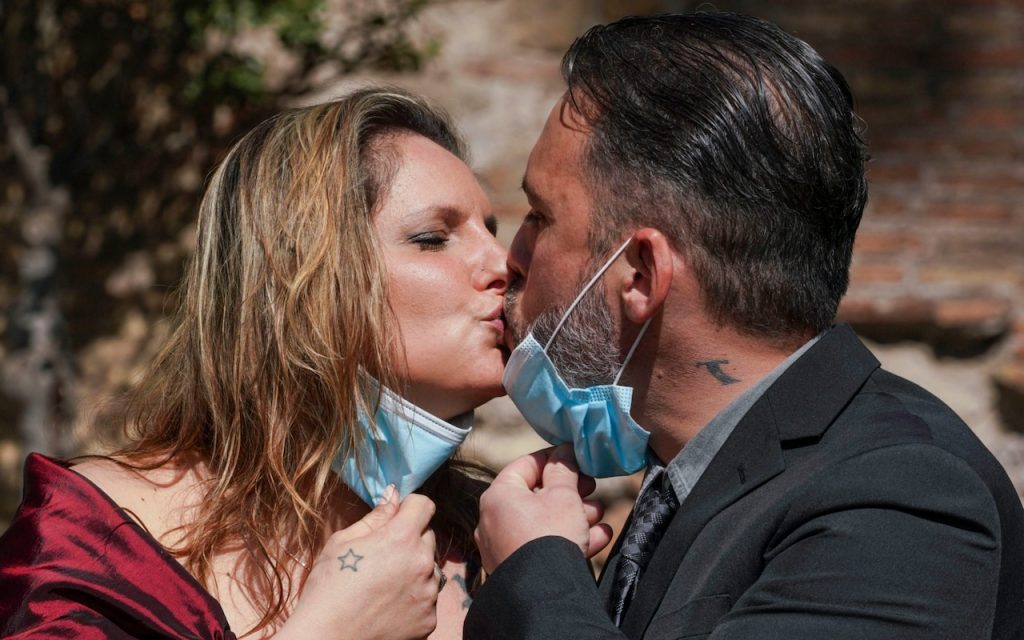
We have created some Lockdown Sceptics Forums, including a dating forum called “Love in a Covid Climate” that has attracted a bit of attention. We have a team of moderators in place to remove spam and deal with the trolls, but sometimes it takes a little while so please bear with us. You have to register to use the Forums, but that should just be a one-time thing. Any problems, email the Lockdown Sceptics webmaster Ian Rons here.
UPDATE: Some of you have asked how to link to particular stories on Lockdown Sceptics. The answer used to be to first click on “Latest News”, then click on the links that came up beside the headline of each story. But we’ve changed that so the link now comes up beside the headline whether you’ve clicked on “Latest News” or you’re just on the Lockdown Sceptics home page. Please do share the stories with your friends and on social media.
Woke Gobbledegook
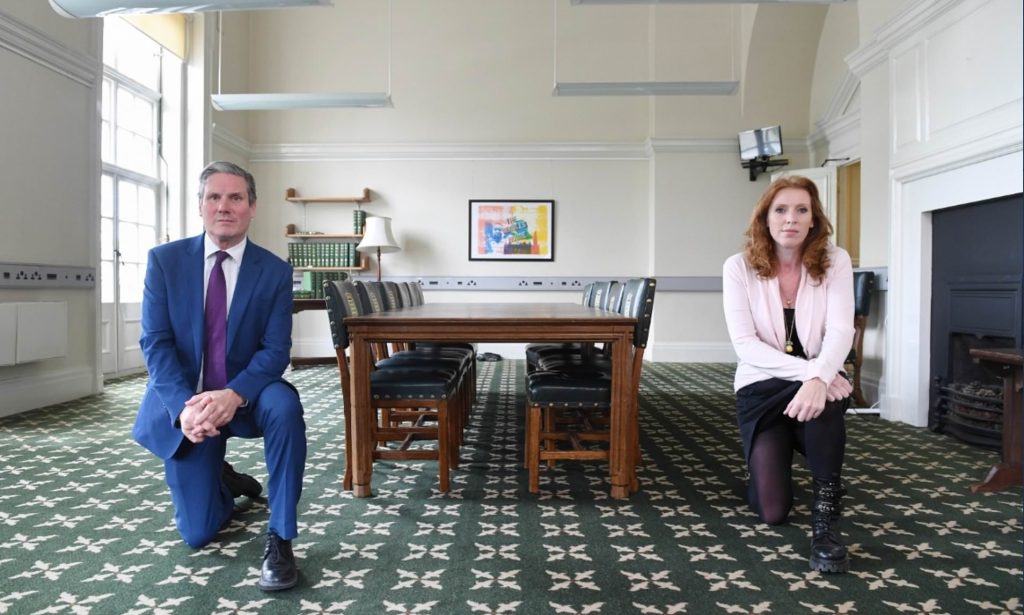
We’ve decided to create a permanent slot down here for woke gobbledegook. Today we feature a protest statement from students and faculty at Boston University. It’s a cracker – if anyone is playing woke bingo this’ll get you a full house.
Institutionalized White Supremacy Culture at BU
BU’s residential reopening policies for Fall 2020 create material damage and risk to Black, Brown, and Indigenous communities, as well as those most economically marginalized regardless of race. As BU School of Public Health Professor Michael Siegel has recently explained, the “Learn from Anywhere” model negatively impacts disadvantaged and minority students under the guise of choice. By supporting and even encouraging a dense campus and the return of tens of thousands of inter-state and international students, BU also is increasing the health risk not only to its own campus community but also to the Greater Boston area. Pre-existing economic disparities – the result of systemic racism and discrimination – mean that COVID-19 has a disproportionate impact on Black and Latinx communities. Any action which increases the risk of transmission of COVID-19 thus disproportionately affects the health of those communities.
These racially and economically disparate outcomes are not coincidental. They are the natural result of an institutionalized culture of white supremacy at BU which is designed to perpetuate existing inequality. This culture of white supremacy was born from the hierarchical power dynamic between masters and slaves and the legacies of settler colonialism. It is fundamentally threatened by the sharing of power. It maintains its authority by restricting access to knowledge. It disarms critics by making superficial change, but rejects the need for systemic transformation or the redirection of resources. It demands cooperation, obedience, and sacrifice in times of scarcity, while in times of plenty enriching only those at the top. An organization which operates in this way cannot advance the cause of human equality and social justice – whatever it intends.
In what follows, we draw from the work of many grassroots activists on anti-racism – particularly Kenneth Jones and Tema Okun, who identified the characteristics of white supremacy culture – to explain how BU’s white supremacy culture brought us to this point. The characteristics of white supremacy culture include but are not limited to paternalism, either/or thinking, power hoarding, a scarcity worldview, a fear of open conflict and tendency toward secrecy in operations, a preference for quantity (or speed) over quality, and a ‘progress is bigger and more’ attitude.
This list is not exhaustive, but we offer it in the spirit of supporting one of the five major pillars of BU’s new Strategic Plan for 2030 – “to strengthen diversity, equity, and inclusion.” The work of becoming a fully anti-racist and anti-oppressive institution requires a clear and specific analysis of and accountability for institutionalized white supremacy culture to be successful. We call on BU to begin its anti-racist work on our own campus. We cannot hope to transform the world if we cannot transform our own institution.
Read the whole ludicrous statement here.
Stop Press: Quillette has published an amusing article about Jessica Krug, the ultra-woke, “African-American” academic superstar who turned out to be a white Jewish woman.
“Mask Exempt” Lanyards

We’ve created a one-stop shop down here for people who want to buy (or make) a “Mask Exempt” lanyard/card. You can print out and laminate a fairly standard one for free here and it has the advantage of not explicitly claiming you have a disability. But if you have no qualms about that (or you are disabled), you can buy a lanyard from Amazon saying you do have a disability/medical exemption here (takes a while to arrive). The Government has instructions on how to download an official “Mask Exempt” notice to put on your phone here. You can get a “Hidden Disability” tag from ebay here and an “exempt” card with lanyard for just £1.99 from Etsy here. And, finally, if you feel obliged to wear a mask but want to signal your disapproval of having to do so, you can get a “sexy world” mask with the Swedish flag on it here.
Don’t forget to sign the petition on the UK Government’s petitions website calling for an end to mandatory face nappies in shops here.
A reader has started a website that contains some useful guidance about how you can claim legal exemption.
And here’s a round-up of the scientific evidence on the effectiveness of mask (threadbare at best).
Stop Press: A woman was tasered and arrested by police in Ohio on Wednesday after she refused to leave an eighth grade football game for not wearing a mask. The Hill has the story.
Police in Logan, Ohio, who identified the woman as Alecia Kitts, said the officer told Kitts she would be asked to leave because she was not wearing a mask, in violation of school policy. After Kitts refused to leave the stadium, the officer warned she would be cited for trespassing. She was tased after she resisted arrest. …
Police said in a statement that when Smith informed Kitts she needed to wear a mask, she responded she had asthma and would not put it on.
“Officer Smith advised the female several times that she needed to put her mask on, and that if she did not, she would be asked to leave and would have to wait outside the stadium,” the statement reads. “The female continually refused his request and Officer Smith advised her that if she refused to leave, she would be cited for trespassing and escorted off the property.” …
“It is important to note, the female was not arrested for failing to wear a mask, she was asked to leave the premises for continually violating school policy,” the police department said. “Once she refused to leave the premises, she was advised she was under arrest for criminal trespassing, she resisted the arrest, which led to the use of force.”
Watch the video here.
Samaritans

If you are struggling to cope, please call Samaritans for free on 116 123 (UK and ROI), email jo@samaritans.org or visit the Samaritans website to find details of your nearest branch. Samaritans is available round the clock, every single day of the year, providing a safe place for anyone struggling to cope, whoever they are, however they feel, whatever life has done to them.
Shameless Begging Bit
Thanks as always to those of you who made a donation in the past 24 hours to pay for the upkeep of this site. Doing these daily updates is hard work (although we have help from lots of people, mainly in the form of readers sending us stories and links). If you feel like donating, please click here. And if you want to flag up any stories or links we should include in future updates, email us here.
And Finally…
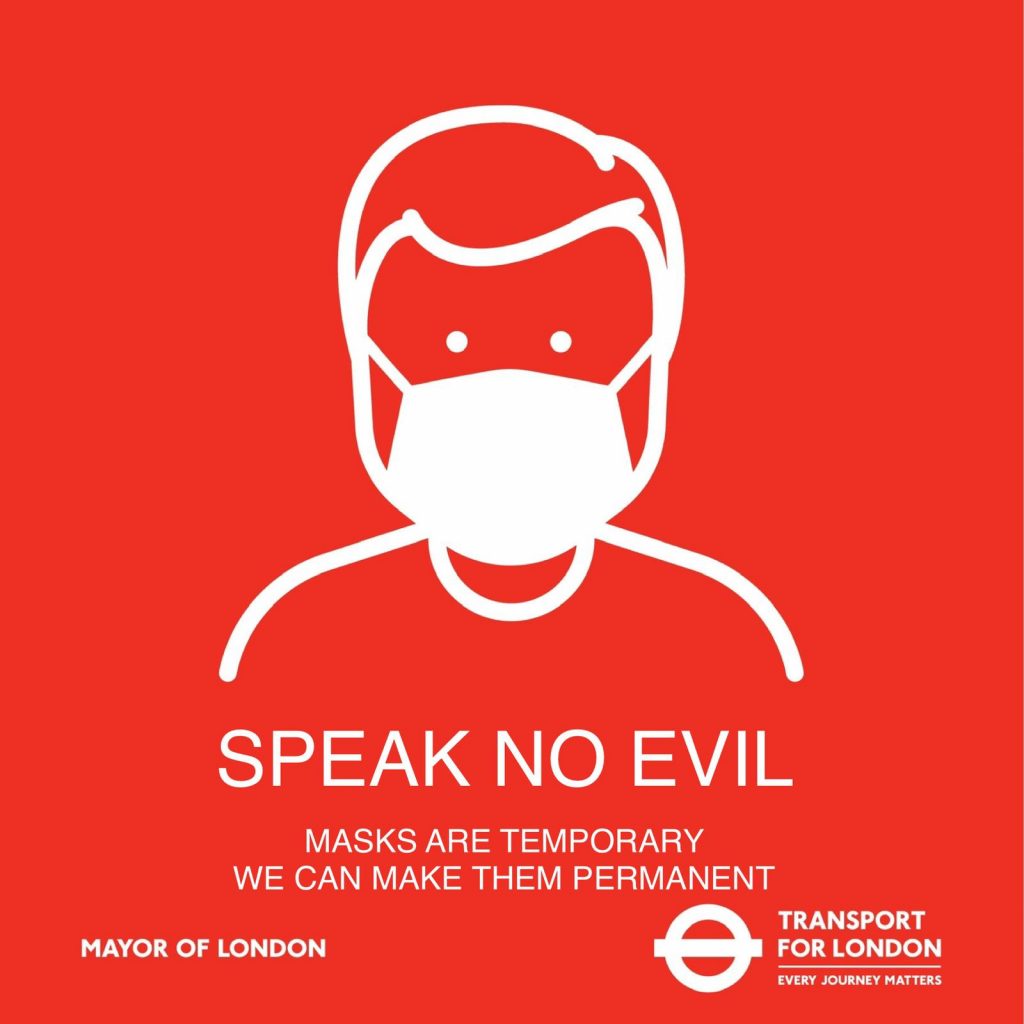











To join in with the discussion please make a donation to The Daily Sceptic.
Profanity and abuse will be removed and may lead to a permanent ban.